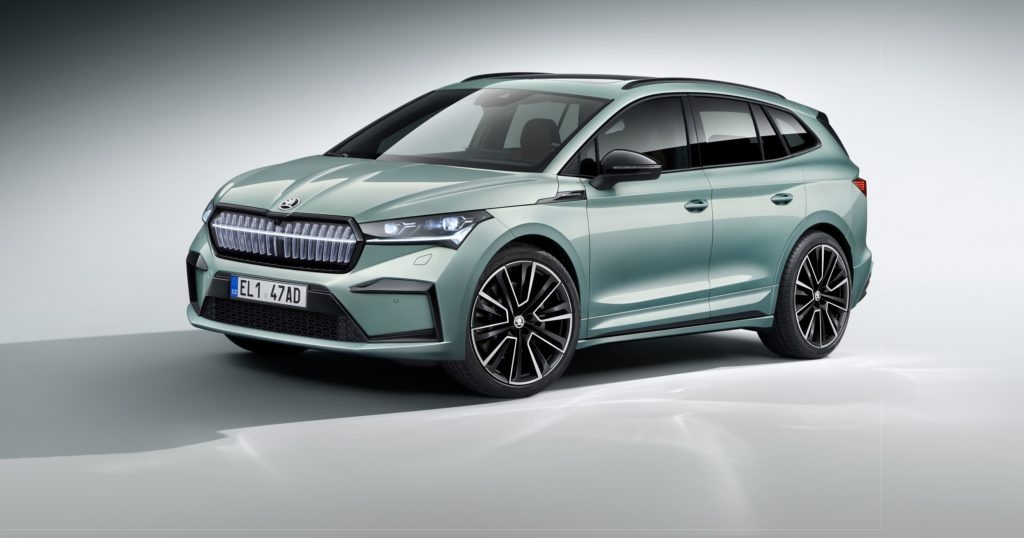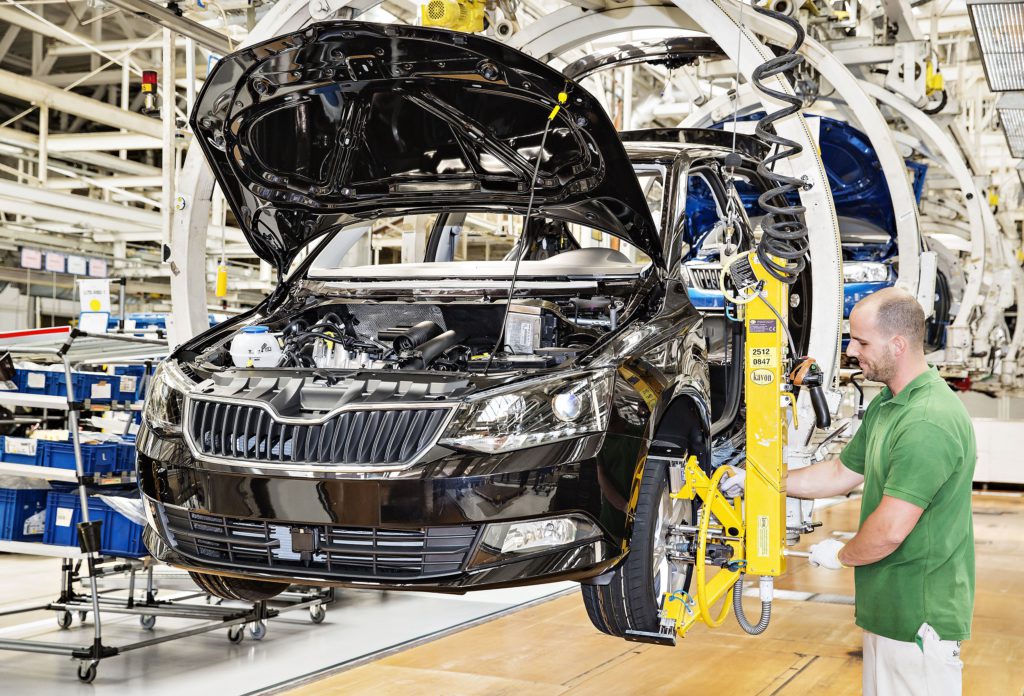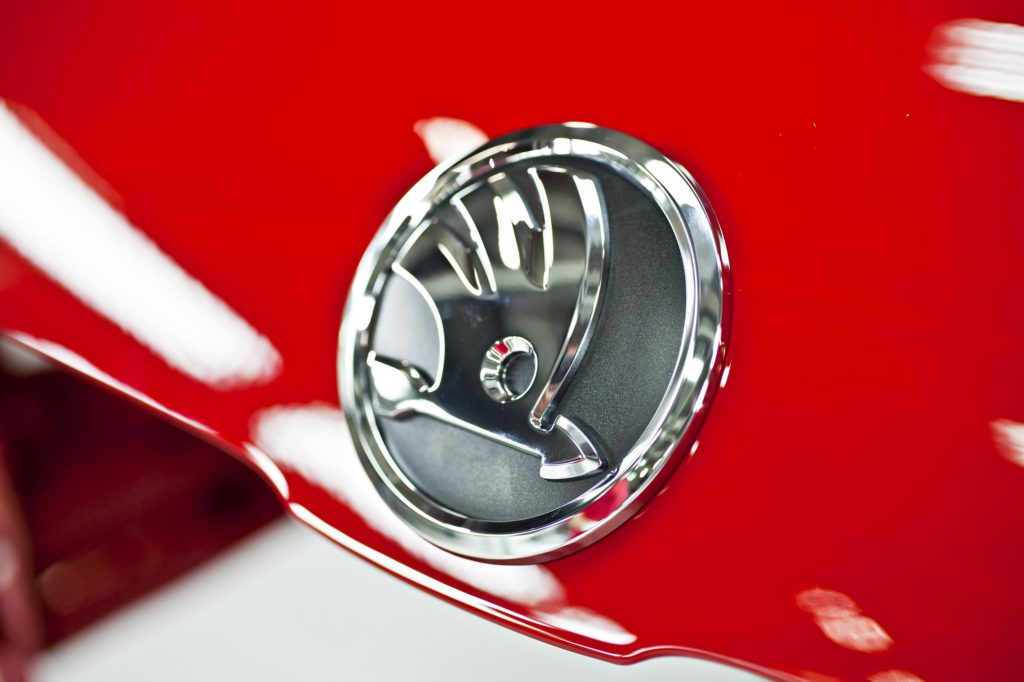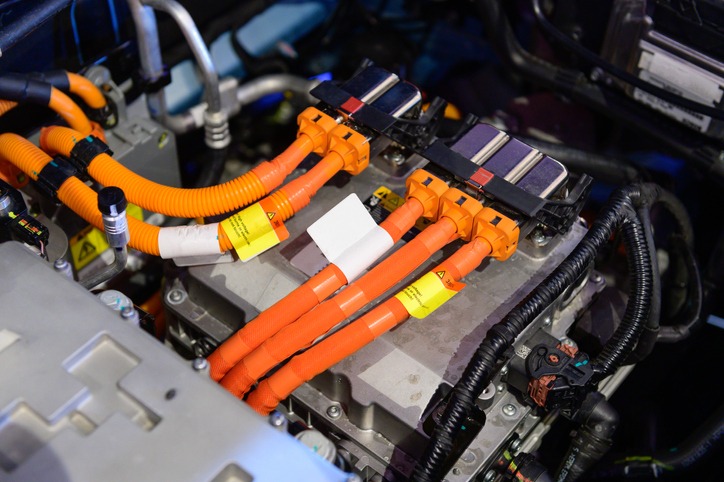Skoda plans for BEVs, increased diversity and digitalisation
25 June 2021
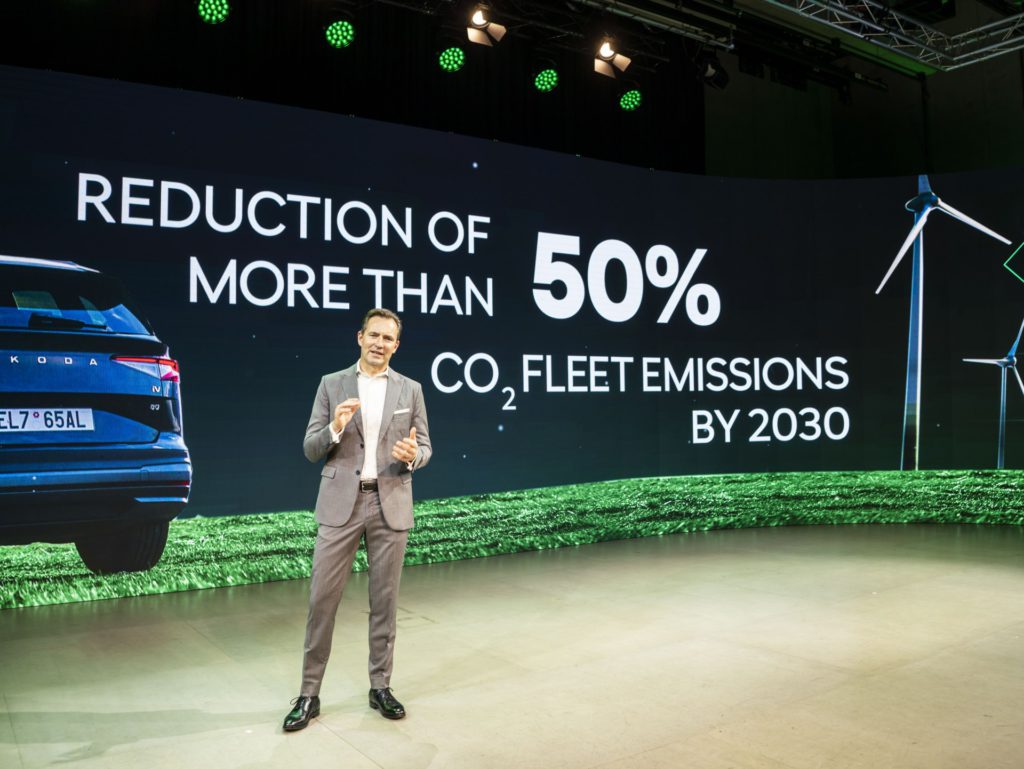
Skoda has unveiled its business strategy up to 2030, which will see the carmaker enter new markets, increase electrification and launch more digital platforms.
The carmaker aims to become one of the top five automotive brands in Europe by 2030 while increasing growth in India, Russia and North Africa. Together with parent company Volkswagen (VW) Group, Skoda will also develop its domestic market, the Czech Republic, into an electromobility hub. This move will, the company hopes, safeguard jobs and create new employment opportunities.
There are also new CO2 emissions targets for the company to achieve. However, Skoda CEO Thomas Schäfer stopped short of suggesting the carmaker would follow sister-brand Audi in phasing out petrol and diesel engines.
New priorities
The ‘NEXT LEVEL – SKODA STRATEGY 2030’ plan focuses on three priorities: Expand, Explore and Engage.
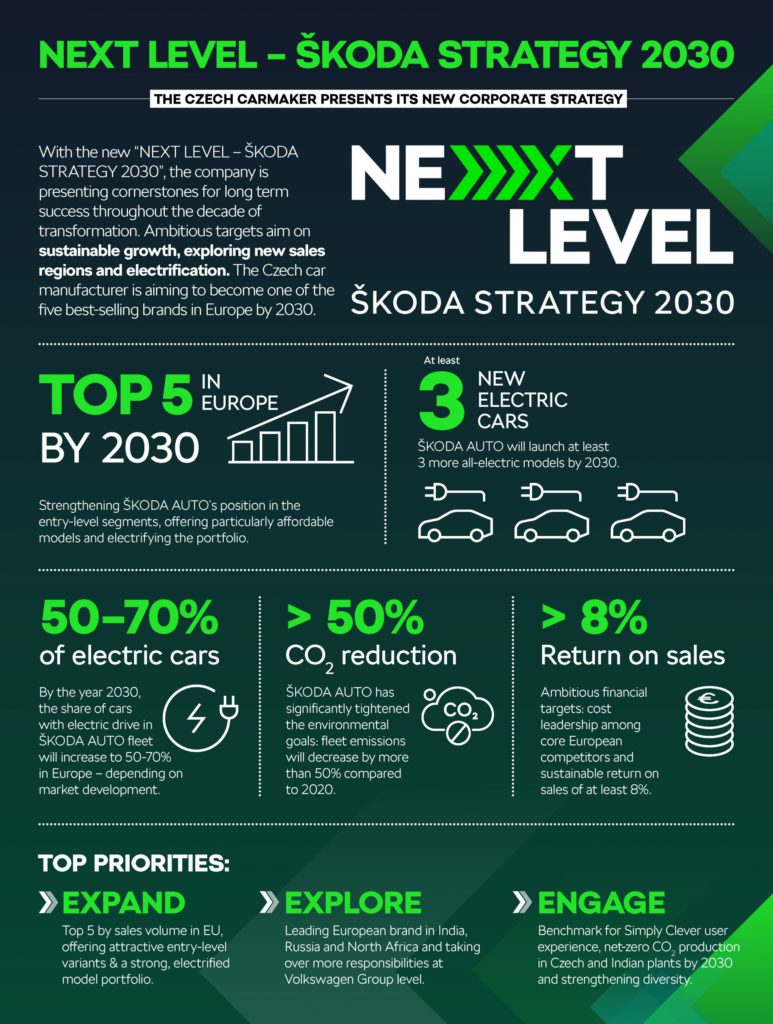
The main goal of the ‘Expand’ pillar is to develop Skoda into one of the five best-selling brands in Europe. The carmaker aims to strengthen its position in entry-level segments, one example being the current Fabia model, with a sales price of less than €14,000.
Yet Schäfer also highlighted that electrification would play a part in this goal. At the corresponding press conference, he announced the launch of three new battery-electric vehicles (BEVs) by 2030. These will be positioned below the new Enyaq in terms of both price and size. Depending on market developments, Skoda is aiming for a BEV share of 50-70% in Europe by 2030.
The carmaker will work with partners to develop the Czech Republic into an ‘electromobility hub’ to safeguard jobs. Components will be produced alongside BEVs in all three of Skoda’s plants in the country by 2030. At the beginning of next year, the production of battery systems for the VW MEB platform will also be launched for the Enyaq. In addition, the Czech carmaker is working with partners to establish a stable supplier structure for e-mobility.
However, the carmaker will not be dedicating its range to BEVs any time soon. Responding to a question from Autovista24, Schäfer said: ‘Eventually the world will follow suit, some countries will electrify later, some earlier. It is hard to put a date on the transition to BEV-only for now. We are lucky because we have just introduced new models, so we have a refreshed model portfolio. This can carry us into the second half of this decade, but we can see what happens on the way.’
Sustainability and diversity
Part of Skoda’s plan is to intensify its sustainability efforts and tighten its environmental targets. Much like many other carmakers, Skoda is aware that more needs to be done when it comes to carbon emissions. Therefore, the company will aim to reduce these across its fleet by more than 50%, compared to 2020, by the end of the decade.
The new business strategy also places greater emphasis on the topic of diversity. Schäfer stated that by 2030, one in every four management positions would be held by a woman. ‘For Skoda, diversity, inclusion and equality are integral components of a corporate culture characterised by openness and tolerance,’ he said. ‘Moreover, as part of the radical transformation process, we are promoting the training and further education of employees and will be investing almost €500 million between 2022 and 2030, with the primary goal of safeguarding jobs for the future.’
Increasing digitalisation
Under its ‘Engage’ pillar, Skoda is bringing together specific goals for the areas of digital customer experience, sustainability, diversity, and education and training. The Czech car manufacturer intends to become the benchmark for a ‘Simply Clever User Experience’. Every customer should be able to operate a Skoda, or a Skoda service, intuitively from the outset.
One of the first lighthouse projects is the PowerPass, which makes charging an electric model straightforward and convenient. It will be available in over 30 markets and can be used at more than 210,000 charging points in Europe. Powerpass is a single Radio Frequency Identification (RFID) card or smartphone app, which enables convenient and straightforward charging at almost 80% of all charging points in Europe.
The company is also expanding its virtual showroom concept and has set itself the goal of selling one in five Skoda models online as early as 2025. Customers in Belgium, the Netherlands, Poland and the Czech Republic are already taking advantage of this option today.
‘With our new NEXT LEVEL – SKODA STRATEGY 2030, we provide specific answers on how we will successfully steer Skoda through the transformation process and ensure that the company will be in an even stronger position in 2030 than it is today,’ Schäfer stated. ‘The brand has incredible potential. We will be leveraging this in the coming years and setting ourselves ambitious goals. Skoda is entering this exciting future from a position of strength. I am looking forward to working with our team of over 43,000 ‘Skodians’ worldwide and our social partner Kovo to take our company to the next level in the years ahead.’
